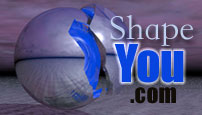A Recovered Treasure: The Pilates Method
In a way, he’s a lot like Edgar Allen Poe.
The famous writer had been deceased for many years before he miraculously cracked super-stardom, his once-buried work revamped from the ashes to be relished by millions and millions of literature fans.
Well, Joseph Pilates is not Edgar Allen Poe. The German immigrant is hardly a household name today, but just like Poe, some thirty-six years after his death, his lost treasures are now being discovered as genius works of art.
You’ve seen the countless infomercials in the middle of the night, boasting this piece of exercise equipment and that toning apparatus. They usually get a famous retired athlete like Joe Montana to endorse it and swear by it. You’ll actually watch for a minute and a half before realizing that you just wasted 90 seconds of your life.
But the word is out that the Pilates Method is different. This one actually works.
That’s why, if you look around, Pilates studios are cropping everywhere throughout the United States. Many health clubs are offering Pilates classes on a regular basis and more and more Pilates machines are filling household closets where those dusty sets of golf clubs used to rest.
Upon arriving in New York City from Germany, Mr. Pilates primarily created his method of fitness to benefit the dance community, as it was a success along Broadway in the 1920’s. The exercises provided dancers with that much-needed agility and grace.
Now, in New York City alone, there are about 40 different studios where the Pilates Method is taught with more cropping up every day.
But the Pilates Method has not been restricted to just exercise outlets. All kinds of hospitals, clinics, and health centers are pulling in these machines to treat patients with spinal injuries, back ailments, and shoulder cuff problems, just to name a few.
The Pilates Method is essentially an exercise that combines toning and stretching, utilizing a series of rhythmic movements to achieve balance and grace. It does not have the effects of heavy free weights or Nautilus machines. The exercises you perform are very smooth and controlled and require specific movements from isolated muscle groups.
The common Pilates apparatus, called the Universal Reformer, looks almost like a magic carpet. Depending on the exercise, your body weight will rest on the padded platform, which moves along the base of the machine through a series of pulleys. The motions are performed with cables and a series of different handles, depending on what motion you’re performing.
These exercises are not performed in sets, really. It is a long, continual motion that will target balance and flexibility, every bit as much as it targets strength and conditioning. You can do an exercise for nearly a half-hour, if you’d like.
What’s interesting about Pilates is that there are no weights involved. No adjusting the resistance, no sliding that pin down a couple of plates. The resistance is you! When your pulling the cables in toward your chest, the weight that your pulling is simply your own body weight. And the magic carpet takes away the use of gravity during the exercise; only your specific muscles being worked is what creates any sort of movement and stability.
Aside from toning up the torso, the Pilates Method also helps you achieve healthy breathing and relaxation while vastly increasing stamina.
With the benefits seemingly unlimited, perhaps the Pilates Method is a wise choice for an alternate route if you’re becoming worn out from those pounding aerobics classes or squeaky Nautilus machines. Or perhaps you’re always one to jump on the latest fitness craze, and for thousands of Americans and patrons worldwide, Pilates is certainly that.
|
